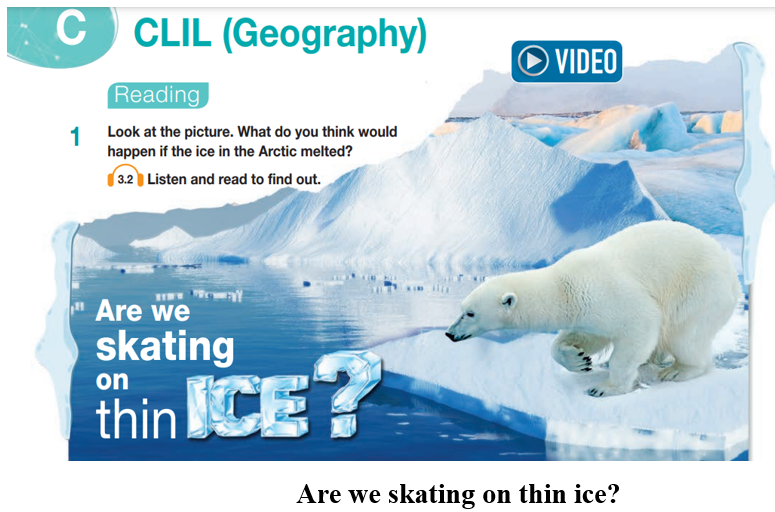Giải SGK Tiếng anh 10 Bright C. CLIL (History) có đáp án
20 người thi tuần này 4.6 2.4 K lượt thi 7 câu hỏi
Bạn cần đăng ký gói VIP ( giá chỉ từ 199K ) để làm bài, xem đáp án và lời giải chi tiết không giới hạn.
🔥 Học sinh cũng đã học
Bộ 2 đề thi cuối kì 2 Tiếng Anh 10 năm 2024-2025 có đáp án - Đề 2
Bộ 2 đề thi cuối kì 2 Tiếng Anh 10 năm 2024-2025 có đáp án - Đề 1
Bộ 2 đề thi cuối kì 2 Tiếng Anh 10 năm 2024-2025 có đáp án - Đề 2
Bộ 2 đề thi cuối kì 2 Tiếng Anh 10 năm 2024-2025 có đáp án - Đề 1
Bộ 2 đề thi cuối kì 2 Tiếng Anh 10 năm 2024-2025 có đáp án - Đề 2
Bộ 2 đề thi cuối kì 2 Tiếng Anh 10 năm 2024-2025 có đáp án - Đề 1
Bộ 2 đề thi cuối kì 2 Tiếng Anh 10 năm 2024-2025 có đáp án - Đề 2
Bộ 2 đề thi cuối kì 2 Tiếng Anh 10 năm 2024-2025 có đáp án - Đề 1
Danh sách câu hỏi:
Lời giải
The melting of the polar ice caps will harm plants, people and wildlife. It will also lead to rising sea levels globally and make the planet become warmer, causing problems for all of us.
Hướng dẫn dịch:
Sự tan chảy của các chỏm băng ở hai cực sẽ gây hại cho thực vật, con người và động vật hoang dã. Nó cũng sẽ dẫn đến mực nước biển dâng cao trên toàn cầu và làm cho hành tinh trở nên ấm hơn, gây ra nhiều vấn đề cho tất cả chúng ta.
Lời giải
1. The rise in the temperature causes the ice caps to melt.
Hướng dẫn dịch:
1. Nhiệt độ tăng lên làm cho các chỏm băng tan chảy.
Lời giải
2. It began to break apart in the year 2000.
Hướng dẫn dịch:
2. Nó bắt đầu tan rã vào năm 2000.
Lời giải
3. The freshwater from the ice began to flow into the ocean, changing the local environment forever. Without the ice, animals such as polar bears, walruses, and seals must move to new areas and change their feeding habits. Many of these marine mammals are at risk as their home continues to disappear into the ocean.
Hướng dẫn dịch:
3. Nước từ băng bắt đầu chảy vào đại dương, thay đổi môi trường địa phương mãi mãi. Nếu không có băng, các loài động vật như gấu Bắc Cực, hải tượng và hải cẩu phải di chuyển đến các khu vực mới và thay đổi thói quen kiếm ăn của chúng. Nhiều loài thú biển đang gặp nguy hiểm khi ngôi nhà của chúng tiếp tục biến mất vào đại dương.
Lời giải
4. The sea levels rise and the planet becomes warmer.
Hướng dẫn dịch:
4. Mực nước biển tăng lên và hành tinh trở nên ấm hơn.
Lời giải
Bạn cần đăng ký gói VIP ( giá chỉ từ 199K ) để làm bài, xem đáp án và lời giải chi tiết không giới hạn.
Lời giải
Bạn cần đăng ký gói VIP ( giá chỉ từ 199K ) để làm bài, xem đáp án và lời giải chi tiết không giới hạn.
